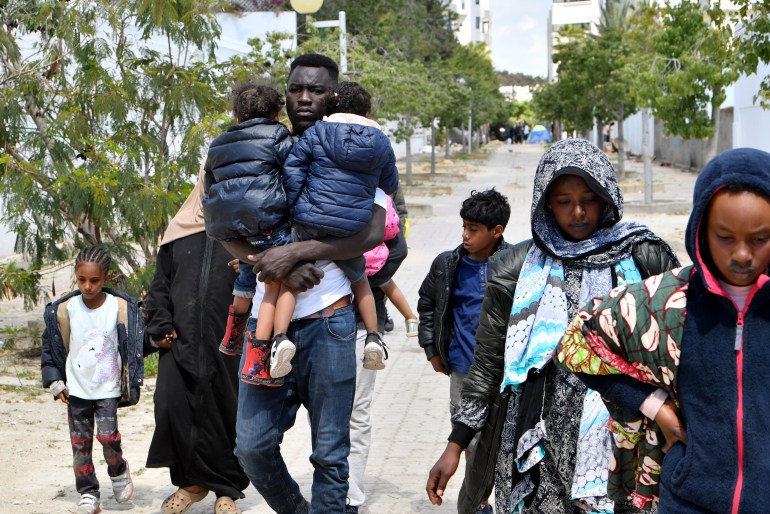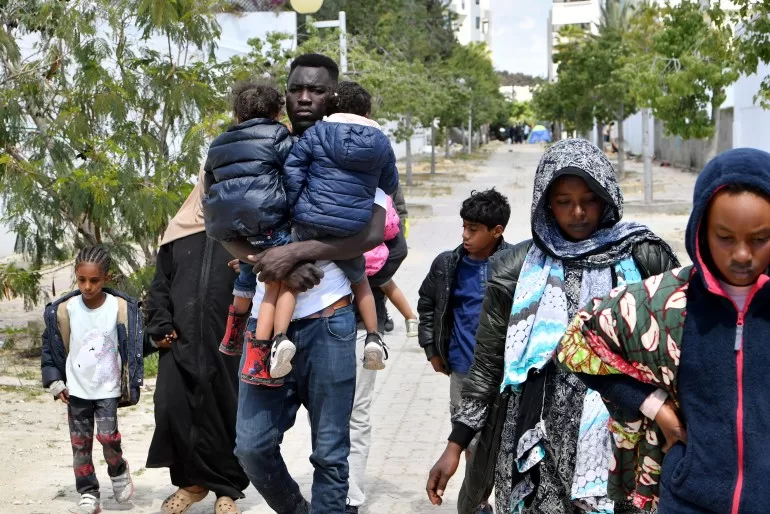Dozens missing after fishing vessel left from border of Senegal and Gambia with 170 believed to have been on board.
The fishing boat capsized on Monday about 4km (2.4 miles) from the West African country’s southwestern coastal city of Ndiago. The Mauritanian coastguard recovered 89 bodies and rescued nine people, including a five-year-old girl, said the state news agency on Thursday.
Survivors quoted by state media said the boat had departed from the border of Senegal and Gambia with 170 people on board, which would mean 72 are now missing. A senior government official confirmed the information to the AFP news agency.
The boat capsized due to strong winds and high waves on the dangerous Atlantic route, known for its strong currents. Migrants travel in overloaded, often unseaworthy, boats without enough drinking water.
Earlier this year, the European Union promised Mauritania, a former French colony, financial support worth 210m euros ($229m) to tackle migration and provide humanitarian aid for migrants.
The agreement came amid a steep increase in the number of migrants setting off from the country towards Spain’s Canary Islands, located about 100km (62 miles) off the northwest coast of Africa.
More than 5,000 people died while trying to reach Spain by sea in the first five months of this year, or the equivalent of 33 deaths per day, according to Caminando Fronteras, a Spanish charity. The vast majority were on the Atlantic route.
Deadly land routes
Increasing numbers opt to travel by land, with deaths of people crossing perilous routes in the Sahara presumed to be double those occurring at sea, according to a new report from the United Nations refugee and migration agencies and the Mixed Migration Centre research group.
“Refugees and migrants are increasingly traversing areas where insurgent groups, militias and other criminal actors operate, and where human trafficking, kidnapping for ransom, forced labour and sexual exploitation are rife,” said the report, released on Friday.
The report, researched over three years, said that conflict and instability in countries including Mali, Burkina Faso and Sudan are driving a rise in the number of journeys towards the Mediterranean.

In total, 1,180 people are known to have died while crossing the Sahara desert between January 2020 to May 2024, but the toll is believed to be much higher, said the report, which drew on testimonies from more than 31,000 people.
This year alone, more than 72,000 people have taken land routes to the Mediterranean, with 785 dying or going missing during that period, according to figures from the UN Refugee Agency (UNHCR).
Libya has emerged as a primary transit point for people fleeing war and poverty. In March, authorities discovered a mass grave containing at least 65 bodies in the country’s western deserts.
Algeria, Libya and Ethiopia were considered by respondents as the most dangerous transit countries.
The report tallied hundreds of cases of organ removals, some migrants having agreed to them as a way to earn money.
“But most of the time, people are drugged and the organ is removed without their consent: They wake up, and a kidney is missing,” said UNHCR special envoy Vincent Cochetel.
